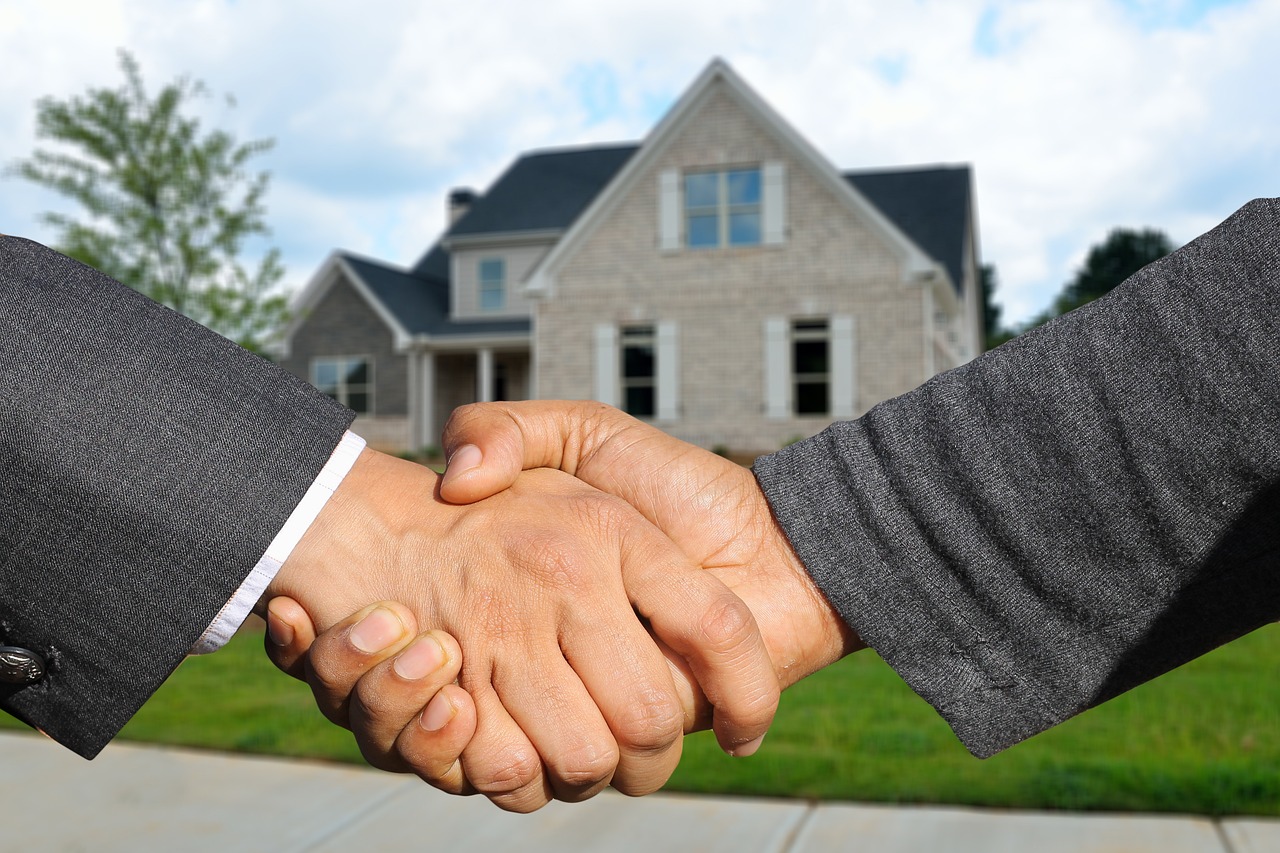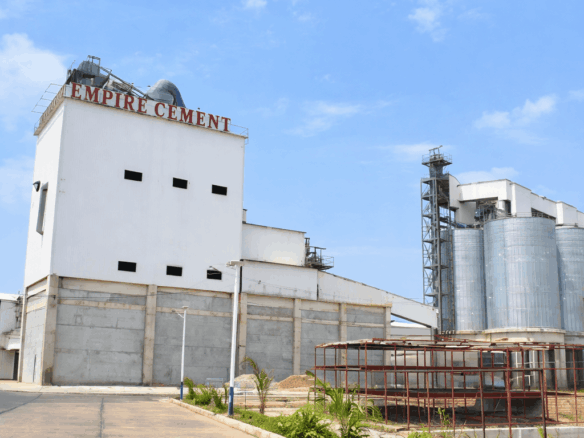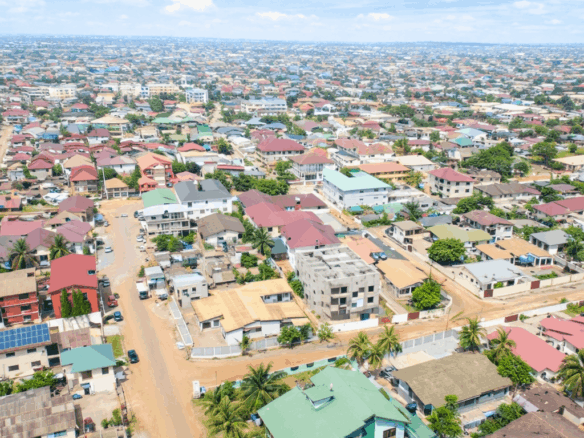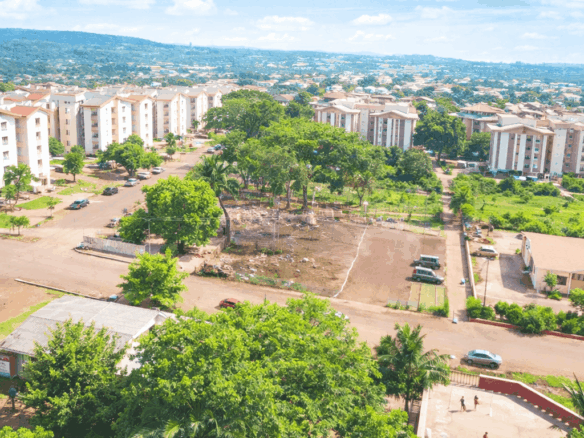Real estate pricing trends in Accra’s residential and commercial markets are reshaping Ghana’s property landscape, with two-bedroom apartments surging 8.2% year-over-year and rental yields hitting an impressive 8-11% annually. As Africa’s third-fastest-growing property market, Accra presents compelling opportunities despite macroeconomic challenges.
Residential Market Shows Strong Growth Across Key Neighborhoods
Accra’s residential pricing reflects dramatic geographical variations that smart investors are leveraging. East Legon maintains its crown as the city’s premier residential destination, with properties averaging ₵8.75 million (~$740,000) and delivering solid 9-10% rental yields. The area’s combination of excellent schools, vibrant amenities, and ongoing infrastructure improvements continues attracting both local elites and international buyers.
Cantonments commands premium pricing at $1,500-2,000 per square meter, Accra’s highest rates, driven by diplomatic demand and limited land availability. Meanwhile, mid-tier neighborhoods like Spintex offer exceptional value, ranking as Accra’s second most in-demand location with three-bedroom houses starting from $75,000.
Emerging suburbs present significant growth potential. Tema properties range $70,000-200,000, benefiting from port expansion and improved connectivity, while Kasoa offers genuine opportunities with average house prices at ₵400,000 ($33,900) and titled plots from ₵70,000.
The market’s supply-demand fundamentals remain robust, with only 800,000 residential units serving over 5 million metropolitan residents. Ghana’s housing deficit of 1.8 million units nationwide creates sustained upward pressure on both sale prices and rental rates.
Commercial Real Estate Pricing Demonstrates Sector-Specific Recovery
Commercial property pricing in Accra shows varying trajectories across sectors. Grade A office spaces command $25-28 per square meter monthly, recovering from COVID-19 impacts that saw 21.4% declines during 2020-2022. Total Grade A office stock reaches approximately 145,000 square meters, with strong demand from multinationals maintaining steady occupancy.
Retail sector performance varies significantly by location and format. Prime shopping centers like Accra Mall achieve ₵844 per square meter, while street-level retail ranges from ₵2,000-14,200 monthly in premium Oxford Street locations. The sector benefits from 12.5% average yields supported by expanding middle-class consumption.
Industrial real estate shows exceptional recovery momentum, with yields reaching 11-14% following previous declines. Warehouse facilities command $14 per pallet monthly, while specialized industrial complexes in Tema range $2-9 million depending on specifications and strategic port proximity.
Economic Forces Shape Investment Opportunities
Ghana’s macroeconomic environment significantly influences property pricing dynamics. Inflation declined from 54.1% peak to 13.7% in June 2025, providing market stability, while the Ghana cedi’s 32.48% strengthening against the USD makes properties more expensive for foreign buyers but provides local investor confidence.
Interest rates at 28% policy rate severely constrain mortgage accessibility, creating clear market segmentation between cash purchasers and those accessing subsidized government programs. The National Housing and Mortgage Fund offers 11.9-12% rates for public sector workers, while private lending reaches 30.25%.
Government initiatives support affordable housing development, with 51,000 acres secured for projects and 10,720 units at various development stages. The National Housing Policy targets 250,000 annual units through 2030, though current supply represents only 3% of total housing stock against massive deficit.
Infrastructure investment serves as the primary price catalyst. The ₵250 million National Flood Control Programme, Eastern Corridor Road improvements, and major developments like Marine Drive Accra ($1.2 billion waterfront project) create substantial value appreciation in surrounding areas.
Looking ahead, demographic trends strongly favor continued growth. Ghana’s median age of 21.5 years creates a large household formation cohort, while urbanization projected to hit 65% by 2030 drives continued Accra migration. Strong remittance flows of $4.6 billion in 2023 provide diaspora purchasing power supporting premium segments.
Foreign investment continues flowing into luxury developments with over 2,000 units in the pipeline and 682 luxury units expected for 2025 delivery, 40% higher than 2024 levels. However, affordability challenges create market bifurcation, with only 5% of the population able to acquire homes without assistance.
Frequently Asked Questions
Q: What are the best neighborhoods for real estate investment in Accra?
A: East Legon offers prestige and 9-10% yields, while Spintex provides excellent value as the second most in-demand location. Emerging areas like Tema and Kasoa present growth opportunities with lower entry costs.
Q: How do rental yields in Accra compare to other African markets?
A: Accra delivers 8-11% annual rental yields, ranking among Africa’s highest. Prime areas achieve 6-9% net yields with appreciation potential, while mid-tier properties can reach 12% yields.
Q: What factors are driving property price increases in Accra?
A: Key drivers include urbanization, housing deficit of 1.8 million units, infrastructure investment, strong demographics, and limited supply against growing demand from both local and international buyers.
Q: Are there financing options for property purchases in Ghana?
A: High interest rates (28-30%) limit traditional financing. Government programs offer subsidized rates (11.9-12%) for public sector workers, while most transactions require substantial cash components or advance rent payments.
Q: What’s the outlook for Accra’s real estate market in 2025?
A: Strong fundamentals support continued growth with 5-8% annual appreciation expected. Success requires strategic positioning between government-supported affordable housing and premium segments serving affluent buyers.
Ready to explore Accra’s exceptional real estate opportunities? Visit Ghana Property Finder to discover premium listings, access market insights, and connect with verified properties across Accra’s most promising neighborhoods. Start your investment journey today with Ghana’s leading property platform.






